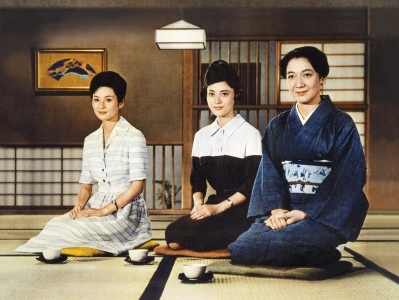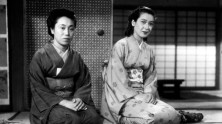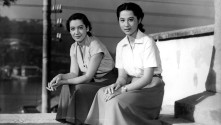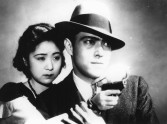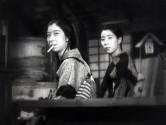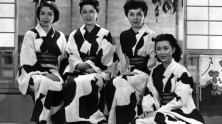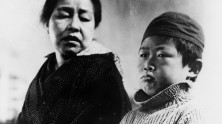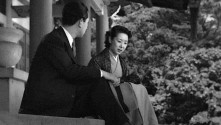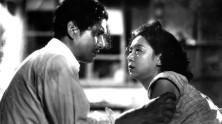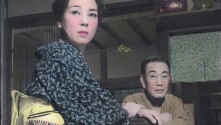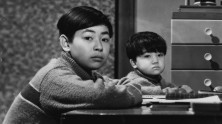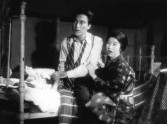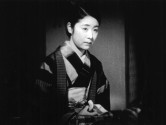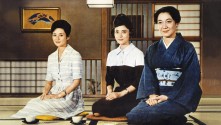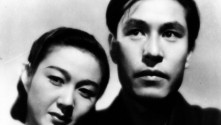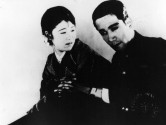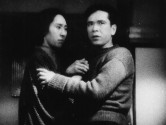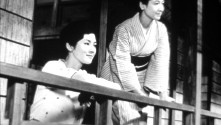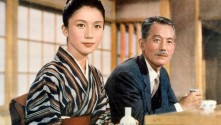
Woman of Tokyo
(Tokyo no onna)
Screening on Film
With Okada Yoshiko, Egawa Ureo, Tanaka Kinuyo.
Japan, 1933, 35mm, black & white, silent, 47 min.
Japanese intertitles with English subtitles.
Print source: Janus Films
Shrouded in shadows, the melodramatic Woman of Tokyo is among Ozu’s bleakest films, explicitly addressing sex work and suicide—topics that reappear in the similarly overcast A Hen in the Wind and Tokyo Twilight. Student Ryoichi (Egawa Ureo) discovers, by way of unsubstantiated rumors, that his older sister Chikako (Okada Yoshiko) has turned to sex work as a second job to support his education. The removal of a detail from the original script—that Chikako’s money is going towards both Ryoichi’s tuition and the Communist Party—flattens the characters yet makes for a more unsettling depiction of male entitlement to female sacrifice. The limited resources with which Ozu could make the film led him to devise inventive and formative solutions involving props: the placement of objects in the foreground to simulate depth, cuts to objects in isolation as a form of caesura between moments of action. It is also worth noting that the intertitle at the beginning of the film, which states that the film is based on the novel Twenty-Six Hours by the Austrian author Ernst Schwartz, is entirely untrue. No such author exists, making the intertitle the only joke of this very quickly but skillfully made film.
